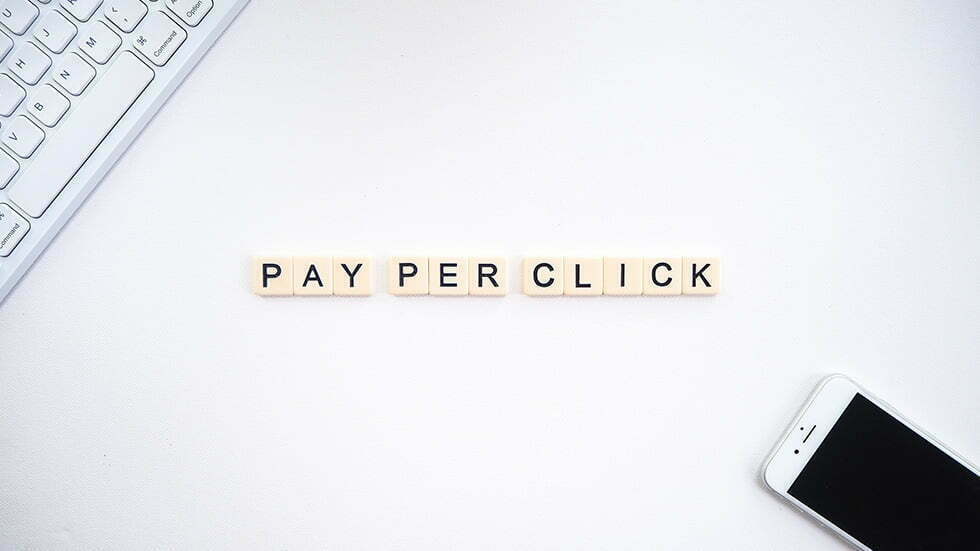The common view within the advertising community used to be that you either advertised using Google AdWords or Facebook Ads. The rivalry between the two companies was often perpetuated by the media which led businesses into thinking they had to choose one or the other as their advertising platform.
Yes, the companies are competitors in that they are both competing for your advertising budget, but that is where any conflict ends for you as an advertiser.
The reality is that that many businesses are now starting to appreciate the benefits of leveraging the strengths that come through advertising via Facebook Ads and Google AdWords in tandem.
The immediate and obvious main benefit is maximising visibility across two of the world’s largest online platforms with each one giving you the opportunity to find new customers, boost sales and leads.
By adopting the appropriate strategies that work on each platform, businesses are seeing incredible returns for their advertising spend.
I’ve put together a brief guide that looks at what sets Facebook Ads apart from Google AdWords and reasons for including both in your digital marketing strategy.
So What Is The Difference Between Facebook Ads and Google AdWords?
Facebook Ads
This is an example of advertising using social networks or “paid social”. Facebook has over 2 billion users with over 1 billion logging on every day, making it the most popular social media platform in the world.
Facebook Ads connect people with businesses based on things the person is interested in and how they have behaved online, whereas Google AdWords (paid search) will identify customers on what they are searching for.
So the only thing the two have in common is that advertisers are using them to promote their business over the Internet.
Google AdWords
Google AdWords is an example of “paid search” and is the currently the most popular and largest Pay-Per-Click advertising platform in the world and has become almost the definition of “paid search”.
Google AdWords uses mainly text ads that appear when someone searches online (or “Googles”) a keyword or phrase. Advertisers will bid for their ad to be displayed in the search results when someone types in their keyword.
If someone clicks on the ad, the advertiser pays; hence the term “pay-per-click” (PPC) advertising.
Advantages and Strengths of Facebook Ads
Although Facebook Ads have been constantly improving for many years, it is still the newbie compared against AdWords. But it has developed a truly revolutionary approach to digital marketing and here’s why.
Huge Audience
With over 2 billion users – a quarter of the planet – Facebook has significant reach. But that’s not the great bit. People share so much data with Facebook that it has categorised into low-level, granular detail allowing advertisers to target Facebook users based on their shopping behaviour, personal interests, values, beliefs, lifestyle choices etc.
So advertisers can create messages about their product and services and confidently direct it at people they know are going to be interested.
An incredibly powerful function within Facebook is “Lookalike Audiences”. By uploading their own existing customer database into Facebook, advertisers can use Facebook’s data and filters to match the profiles of existing customers with other similar Facebook users.
Facebook finds people who are just like your current customers so you now have a ready-made, new audience for you to target who are all exhibiting the same interests, consumer behaviour and likes as those people who have already bought from you.
So rather than being seen as just randomly posting to as many people as possible, Facebook Ads should be viewed as a means to target ideal customers with more accuracy than could have been dreamed of.
It’s Visual
Google AdWords are mainly text-based so it’s difficult for one Ad to stand out from another. Facebook Ads are powerful because they use images and videos. So they blend in with posts that users see from friends in their News Feed and the power of visuals make Facebook Ads a more attractive, compelling and persuasive proposition. Plus the opportunity to run creative and eye-catching campaigns is far greater.
Google maintains its status by continuously testing ad formats and Facebook is no different. Facebook is constantly reviewing how it can improve its proposition to ensure advertisers continue to see great returns. A recent change has been the relaxation of the rule forbidding more than 20% of the image space being used for text. Despite this amendment, Facebook remains very much a visual platform, which is such a strong selling point for advertisers
Amazing Return On Investment
Facebook Ads are a vey affordable option and great value when you consider the impact they can have and the granularity of detail when targeting audiences. Its competitive pricing means Facebook Ads can be used by small and large businesses. Small budgets can be stretched to offer staggering returns, making Facebook Ads arguably the best value online advertising platform available today
The Advantages and Strengths of Google AdWords
Google is still the most widely used search engine in the world. It handles more than 3.5 billion search enquires per day and is the “Go To” search engine. It’s so well known that to “Google it” is a common phrase and its power gives advertisers a portal to a massive world of users searching for solutions to their problems.
Google AdWords operates over two main networks. The more familiar is the Search network and this uses all of Google (but only Google) as a search engine for advertisers to bid on various keywords that potential customers are typing in.
Google’s Display network allows advertisers to use visual ads and images in banner ads. This operates both on Google and 98% of the Internet and while not so good for PPC advertising, is great for advertisers that are more concerned with getting their name out there for brand awareness.
Choice of Advertising Formats
Back in 2000, Google AdWords launched with 350 advertisers and basic text-based ads. Google is fairly secretive when it comes to revealing their own success in numbers but they now make around $121million per day through advertising revenues.
Despite AdWords remaining text-based, there are many features advertisers can use to increase the appeal of their ads. Enhancements such as sitelinks, user reviews, ad extensions, location targeting and shopping ads now give a greater degree of control.
Google has also started to introduce industry-specific formats for businesses such as hotels that include interactive maps and hi-res images.
Google Makes Things Fair
If you think that to get your Ad shown above someone else’s you just need to have a bigger budget then you’re wrong. Years ago that may have been the case but the days of seeing totally irrelevant ads appear when typing in a phrase are mostly behind us.
Google has increasingly focused on giving page position to ads that are high quality and relevant to the keywords to give what is called a quality score. It’s a complex system but one indication of ad relevance will be its Click-Through Rate (CTR).
This came about because Google wanted people who use its search engine to trust it. If they see relevant ads they are more likely to keep on using Google when searching for goods and services.
Those ads with a better quality score will often cost less and feature more prominently than those that simply bid more.
So Ad quality and relevance now matters more than anything else, meaning if you invest in producing the right type of ads for your message you can outrank your competitors who run poorer ads regardless of how big their budgets may be.
A Huge Audience
Google’s search engines process over 40,000 queries per second. In other words, over 1.2 trillion enquires each year. Google’s own artificial intelligence gives an increasing level of sophistication which is all good news for advertisers as it will mean even greater reach for potential new customers.
Google’s search engines are superior in that it has access to the biggest audience. Whereas you need your potential customer to be a Facebook user to see Facebook Ads, someone only has to search on Google to potentially see your Google AdWords ads.
For sheer size and volume of potential customers alone, Google is superior. Combined with its improving search results accuracy, it is no surprise that Google AdWords is still the most popular Pay Per Click advertising platform on the globe.
So Which Should You Use?
Our experience is that businesses we work sometimes run a campaign on one platform whilst concurrently running a consistent campaign on the other. Sometimes they may use one platform for a main campaign and also use the other platform for retargeting.
Every business can benefit from Facebook Ads and Google AdWords but the key point is the platforms should be seen as complementary rather than either / or as both are incredibly effective advertising strategies.
Ultimately it is essential to be clear on the objective of the campaign and know how to best use these platforms to generate growth and maximise your ROI.



